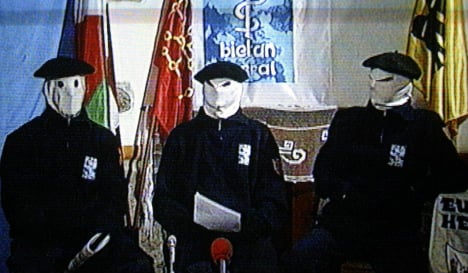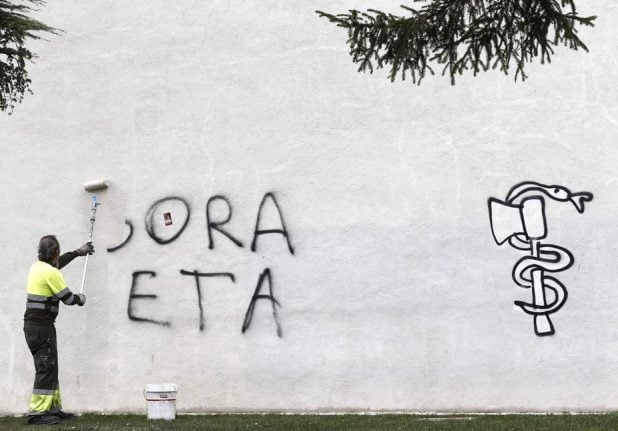Five years ago today, the armed group Eta declared a permanent ceasefire. Three masked militants made a statement on video that the band was giving up violence. They urged Mr. Zapatero’s Spanish government to start a political dialogue. Many Basques and Spaniards felt relieved and thought that the time for politics have finally arrived. Without the threat of terrorism everything would be easier, or that was at least what we were led to think.
It is difficult to express in words how happy I was with the announcement. The burden of violence had engulfed not only my own community, but the whole of Spain for five long decades. It was like coming out of a dark and suffocating tunnel.
I had no experience of my country without demonstrations, tortures, detentions, killings and bombs. I was only fifteen when thousands of people in the Basque Country poured out to streets to protest against the trial of sixteen Basque Eta activists.
I still remember the bloody face of an elderly woman battered by the police in Bilbao. I have never forgotten it. Spain was under Franco’s dictatorship and the regime’s brutality was unquestionable. At that time you could be punished or even go to prison for speaking in Basque. Any sign of national identity was tantamount to separatism.
By the time I entered university Eta was popular amongst the students. We believed in a “new” world, and the experiences of Algeria, Cuba, and even Vietnam had caused a great impact on us. Socialism and the independence of the Basque Country seemed then like a very achievable goal. How naive and wrong we were.
Franco died in bed. Many of his former comrades were swift to adapt to a fledgling democracy, some of them without sincere convictions. Democracy progressed, sometimes with great difficulties, and formal liberties were restored.
Eta went on as if nothing had changed. The killings, mainly police and security members, were more and more frequent and the action-repression mechanism was soon in full flow. In 1980 alone, the most tragic year, 93 people were killed by the group, more than double the number of the (Eta) victims during the Franco’s years. At home, my mother, a Basque refugee from the Spanish civil war, sentenced: “Violence won’t work. Sooner or later people will turn their backs on them.”
In its mad blindness Eta lost a large part of the support they had enjoyed in the precedent years of Francoism, not only in the Basque region, but also in Spain.
They never regained this support, not even when years later (1983- 1987) twenty-six people, many of them members of Eta were killed in the south of France by an obscure organization called GAL funded with money from the Ministry of Security. The minister and a high rank politician ended up in prison, but with lenient sentences.
For many years the Basque independentists of Herri Batasuna ( a coalition that had to change its name multiple times in the past) was seen as a close ally to Eta. It was banned in 2003 and its leaders arrested.

Basque separatist leader, Arnaldo Otegi in San Sebastian. Photo: AFP
With growing dissatisfection within its ranks, more than five hundred prisoners scattered in Spanish and French prisons, and very poor political achievements, the independentists opted for the obvious but most difficult task ; convince Eta to give up violence and follow the path of politics. Arnaldo Otegi, the veteran leader of Bildu and former member of Eta, managed to persuade his old comrades.
Eta has not yet handed over their arms, but here in the Basque Country we are convinced that they will not use them again. Five decades of hate, pain and suffering has been enough.
In the regional elections of last September, Bildu, the pro- independence coalition, was the second most voted for political force. The most centralists options (Popular Party and Socialist Party) were relegated to the lowest ranks.
“While violence exists, we will not engage in political dialogue” used to be the line from successive Spanish governments. Now, that the guns and bombs have been silent for five years, many Basques wonder where the dialogue is, and if “terrorism” was just a perfect excuse to hide a political problem that Madrid chooses to ignore.
Alberto Letona is a Basque journalist living in Bilbao. He is the author of Hijos e Hijas de la Gran Bretaña – Sons and Daughters of Great Britain – in which he delves into the psyche of the British in an attempt to explain them to his own countrymen.




 Please whitelist us to continue reading.
Please whitelist us to continue reading.
Member comments